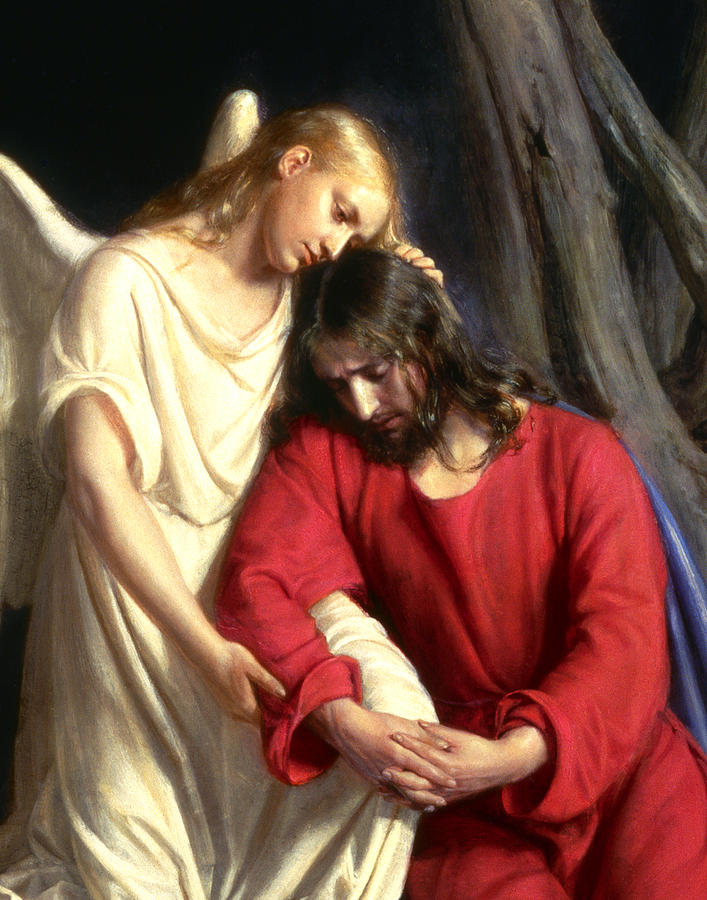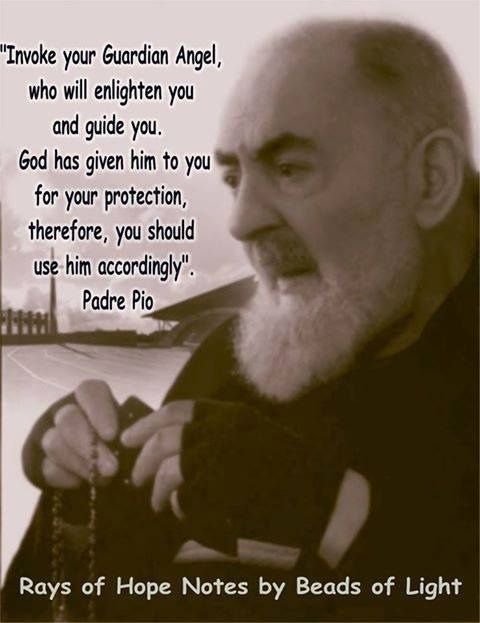Today the Roman Catholic Church celebrates the Memorial of our Guardian Angels.
In the second reading from the Office of Readings in the Liturgy of the Hours (pg. 1454, Book IV), there is a section from the beautiful sermon on the Guardian Angels by the French Benedictine abbot St. Bernard of Clairvaux (1090 -1153; canonized in 1174, named a Doctor of the Church in 1830 by Pope Pius 8th).
St. Bernard explains, “He has given His angels charge over you to guard you in all your ways. These words should fill you with respect, inspire devotion, and instill confidence; respect for the presence of angels, devotion because of their loving service, and confidence because of their protection. And so the angels are here; they are at your side, they are with you, present on your behalf. They are here to protect you and to serve you. But even if it is God who has given them this charge, we must nonetheless be grateful to them for the great love with which they obey and come to help us in our great need.
So let us be devoted and grateful to such great protectors; let us return their love and honor them as much as we can and should. Yet all of our love and honor must go to Him. for it is from Him that they receive all that make them worthy of our love and respect.”
We may have learned the following prayer as children years ago: “Angel of God, my guardian dear, to whom God’s love commits me here, ever this day be at my side, to light and guard to rule and guide. Amen.” This prayer is not only for children. It can serve as a great source of comfort and protection to all who devoutly recite it. Recent scholarship shows that it was composed for adults by a Benedictine monk.
The blog, Aleteia, relates: “For many years it was believed that St. Anselm of Canterbury, a Benedictine monk who lived during the 11th century, was the author of the prayer. However, recent scholars have discovered that the prayer was likely inspired by Reginald of Canterbury, another Benedictine monk who lived at the same time as St. Anselm. Scholars found a prayer in Reginald’s Life of St. Malchus that bears a strong resemblance to the current Angel of God prayer.” https://aleteia.org/2017/10/02/who-composed-the-angel-of-god-prayer/
Angels, as pure mind and spirit, have been given by God infinite knowledge of the universe and all that is in it. Surprisingly, Guardian Angels are in the 9th choir of angels – the lowest!
Each “choir” of angels has a specific purpose. Regardless of purpose they all give glory to God. Each angel, in all nine choirs, is unique. No two angels are the same. They do not have human bodies, thus, angels do not have gender. They are not in any way shape or form male or female. Angels are artistically represented that way so we can attempt to have some sense of relationship with their existence.
We should not give our Guardian Angel a name.
When we die we do not become angels. Depending on how we have lived we are judged by God to eternal life with Him or eternal death with Satan.
Angels are by our side from the moment of our conception throughout our earthly life – both day and night. We need to develop a spiritual relationship with our Guardian Angel; saying the Guardian Angel prayer is a good start to this friendship.
Angels are mentioned numerous times in the Hebrew Scriptures. They are also mentioned in the Gospels, Acts of the Apostles, the Book of Revelation (The Apocalypse) and at least twelve Epistles. Numerous saints, prophets, and scholars have also written about the various choirs of angels. St. Thomas Aquinas, (1225 – 1274), the greatest theologian of the Catholic Church, wrote extensively about angels and demons in his great opus The Summa Theologica.
The angels are with us, to comfort and intercede, not only throughout our life but also at the time of our death.

Contemporary elites call angels and demons a figment of the imagination. Psychologists refer to them as filling a need within an individual’s psyche. A sociologist or anthropologist of religion may refer to angels and demons as expressions of tribal or societal imagination.
Jesus Christ spoke of the angels and demons throughout the Gospels. The Apostles refer to them in their Epistles. Jesus referred to the angelic rebellion that occurred in Heaven, the damnation of Lucifer, and the spiritual war that began with our spiritual parents, Adam and Eve, and continues to this very day.
A contemporary work on angels is Dr. Peter Kreeft’s book: Angels (and Demons) – What Do We Really Know About Them? (Ignatius Press, San Francisco, 1995). It is an excellent book; written is a modern style and very readable. It is a necessary read if you desire to know the truth about the nine choirs of angels and the fallen angels, known as demons. Demons are under the leadership of the main fallen angel who was known as Lucifer. Since his fall from Heaven he is known as Satan. These spirits are real, Heaven is real. Hell is real.
If you doubt contemporary evidence you need to read the books by Fr. Gabriel Amorth or listen to (on YouTube) the sermons and conferences by Fr. Chad Ripperger who speaks authoritatively as an exorcist. His conferences on spiritual warfare, demons, Guardian Angels, and the Virtues that must be cultivated are extraordinary. Fr. Ripperger is clear, concise, and to the point. Yet, before you read or listen to Amorth or Ripperger, it is recommended that you read Dr. Kreeft’s book.

Copyright © 2011- 2020, Deacon Paul O. Iacono – All Rights Reserved. Permission to reprint must be obtained from the author in writing. Students, and those interested, may quote small sections of the article as long as the proper credit and notation is given. Thank you.

HI Deacon Paul,
Thank you. I thank my guardian angel daily. My angel has helped preserve my physical and spiritual health. I have an extremely strong angel and have presented many challenges for guidance. I currently am a better listener. As always , with affection and gratitude, Kath O
LikeLike
Hi,
We hope that you and your family are all well and surviving the current state of events! I’m glad that you enjoyed the post; feel free to pass it on to anyone that you think will enjoy/benefit from it.
May the peace and blessings of Our Lord always be with you and yours.
Deacon Paul
LikeLike